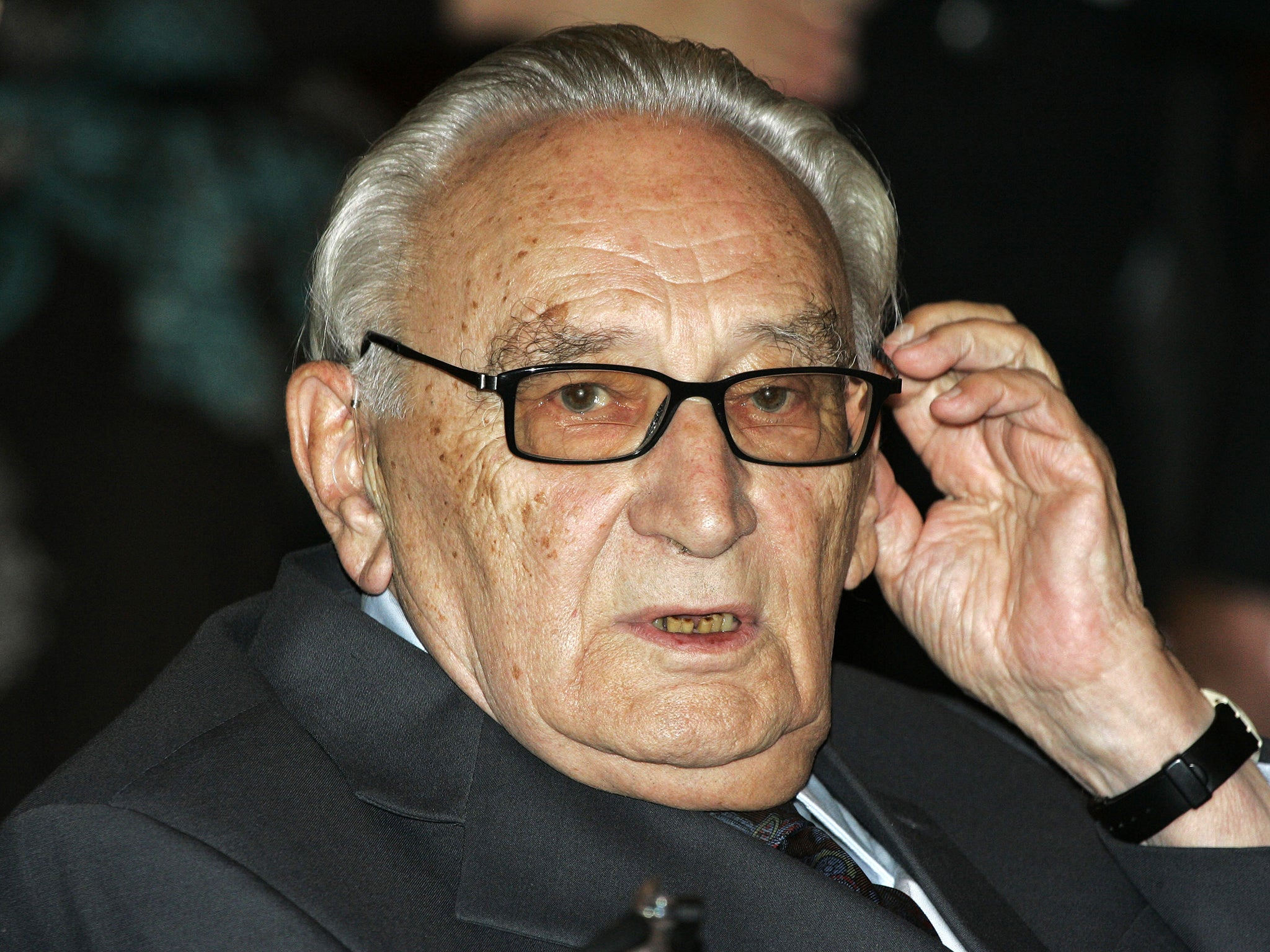Egon Bahr: Statesman who assisted Willy Brandt in his policy of rapprochement with East Germany and the Soviets
Served as state secretary, minister for special affairs and minister for economic co-operation

Your support helps us to tell the story
From reproductive rights to climate change to Big Tech, The Independent is on the ground when the story is developing. Whether it's investigating the financials of Elon Musk's pro-Trump PAC or producing our latest documentary, 'The A Word', which shines a light on the American women fighting for reproductive rights, we know how important it is to parse out the facts from the messaging.
At such a critical moment in US history, we need reporters on the ground. Your donation allows us to keep sending journalists to speak to both sides of the story.
The Independent is trusted by Americans across the entire political spectrum. And unlike many other quality news outlets, we choose not to lock Americans out of our reporting and analysis with paywalls. We believe quality journalism should be available to everyone, paid for by those who can afford it.
Your support makes all the difference.Egon Bahr was the German statesman who helped pioneer the “Ostpolitik” policy of improving relations with the communist East under the West German Chancellor Willy Brandt. As a state secretary under Brandt, Bahr helped guide negotiations between divided East and West Germany, as well as with the Soviets, and played a key role in the negotiation of several treaties.
He also served as minister for special affairs, then minister for economic co-operation under Brandt’s successor, Helmut Schmidt. “Egon Bahr’s work for Germany and Europe achieved historic significance even during his lifetime,” said the Social Democratic party leader Sigmar Gabriel, adding that Bahr’s greatest reward was seeing the Berlin Wall come down in 1989. “[Bahr] put his trust in the might of freedom and the power of dialogue, that was the basis for change through rapprochement.”
Bahr served as a soldier in the Wehrmacht from 1942 until 1944 but was demoted because of his Jewish grandmother. After the war he worked as a journalist and political spokesman, joining the SPD in 1956. He was considered one of the most important and most influential advisors to Brandt, especially with respect to Ostpolitik, for which he did much important work behind the scenes, preparing treaties.
The German Foreign Minister Frank-Walter Steinmeier noted that throughout his life, Bahr was convinced that lasting peace in Europe wouldn’t be possible without Russia – indeed, he was in Moscow last month, campaigning for better relations between Germany and Russia in the midst of Russia’s involvement in the Ukraine conflict.
Egon Karl-Heinz Bahr, politician: born Treffurt, Thuringia, Germany 18 March 1922; married Adelheid; died 20 August 2015.
Subscribe to Independent Premium to bookmark this article
Want to bookmark your favourite articles and stories to read or reference later? Start your Independent Premium subscription today.
Join our commenting forum
Join thought-provoking conversations, follow other Independent readers and see their replies
Comments